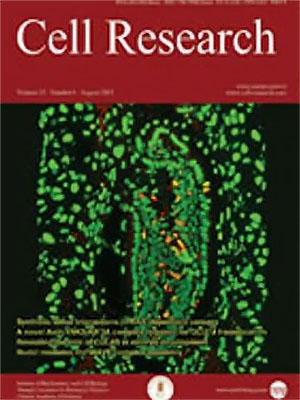
Volume 14, No 6, Dec 2004
ISSN: 1001-0602
EISSN: 1748-7838 2018
impact factor 17.848*
(Clarivate Analytics, 2019)
Volume 14 Issue 6, December 2004: 497-506
ORIGINAL ARTICLES
Downregulation of wild-type p53 protein by HER-2/neu mediated PI3K pathway activation in human breast cancer cells: its effect on cell proliferation and implication for therapy
Li ZHENG1, Jia Qiang REN1, Hua LI1, Zhao Lu KONG2, Hong Guang ZHU1*
1Department of Pathology, Shanghai Medical College, Fudan University, Shanghai, 200032, China.
2Institute of Irradiation Medicine, Fudan University, Shanghai, 200032, China
Correspondence: Hong Guang ZHU(hongguang_701@yahoo.com)
Overexpression and activation of HER-2/neu (also known as c-erbB-2), a proto-oncogene, was found in about 30% of human breast cancers, promoting cancer growth and making cancer cells resistant to chemo- and radio-therapy. Wild-type p53 is crucial in regulating cell growth and apoptosis and is found to be mutated or deleted in 60-70% of human cancers. And some cancers with a wild-type p53 do not have normal p53 function, suggesting that it is implicated in a complex process regulated by many factors. In the present study, we showed that the overexpression of HER-2/neu could decrease the amount of wild-type p53 protein via activating PI3K pathway, as well as inducing MDM2 nuclear translocation in MCF7 human breast cancer cells. Blockage of PI3K pathway with its specific inhibitor LY294002 caused G1-S phase arrest, decreased cell growth rate and increased chemo- and radio-therapeutic sensitivity in MCF7 cells expressing wild-type p53. However, it did not increase the sensitivity to adriamycin in MDA-MB-453 breast cancer cells containing mutant p53. Our study indicates that blocking PI3K pathway activation mediated by HER-2/neu overexpression may be useful in the treatment of breast tumors with HER-2/neu overexpression and wild-type p53.
FULL TEXT | PDF
Browse 2278


